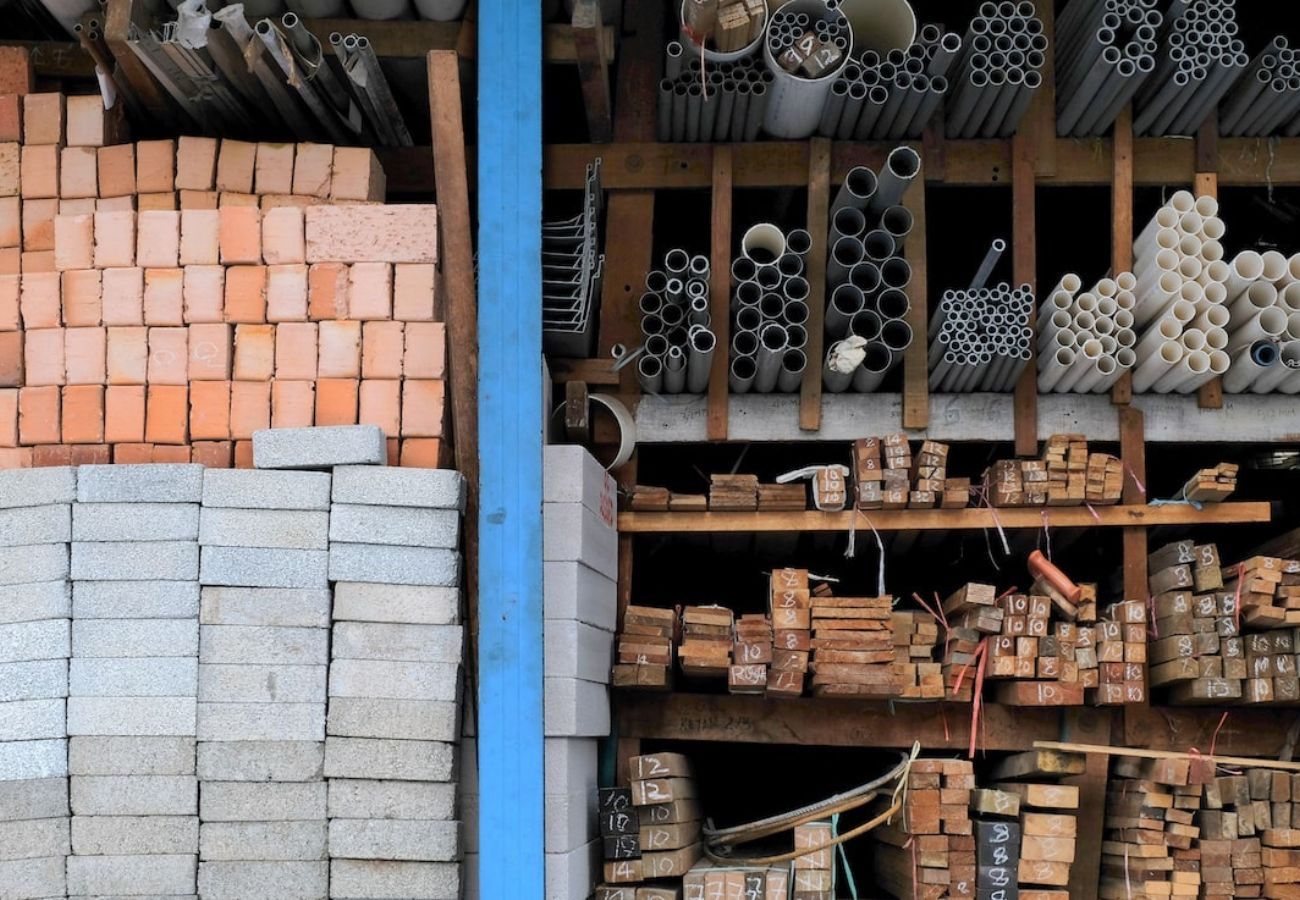The rising cost of building materials in Nigeria has created significant challenges for the construction industry. Between May 2023 and May 2024, inflation skyrocketed from 22.42% to 33.69%, resulting in a notable increase in the price of essential construction materials. This comparative analysis provides an in-depth look at the cost escalation of materials such as cement, windows, doors, and iron rods during this period.
The Impact of Inflation on Building Materials
A market survey conducted by Nairametrics in Lagos reveals that prices of building materials rose by over 13% on average within a year, impacting construction budgets and timelines nationwide.
Let’s explore the price hike across selected materials:
Cement
In May 2023, the average price of cement in Lagos stood at ₦4,300 per bag. Fast forward to May 2024, and the price has surged to between ₦7,500 and ₦8,000, marking an increase of 74.42% to 86.05%. Interestingly, this represents a decline from the peak price range of ₦11,000 to ₦15,000 per bag observed in February 2024. For bulk purchases exceeding 100 bags, buyers can typically receive a discount of around ₦200 per bag.
Doors
The price of double steel doors also saw a dramatic increase. In May 2023, the cost ranged from ₦70,000 to ₦80,000. By May 2024, prices soared to between ₦250,000 and ₦300,000, representing a staggering 200% to 290% increase.
Windows
Aluminium casement windows without burglary protection cost ₦50,000 for a 4ft-by-4ft size in May 2023. By May 2024, the same window was priced at ₦80,000, while the version with burglary protection rose from ₦70,000 to ₦110,000. This represents a 57% to 60% price jump over the year. Sliding windows also saw an increase of 33% to 43%, depending on whether they included burglary protection.
Iron Rods
The price of iron rods, a crucial material for construction, saw substantial hikes as well. For example:
- 12mm rod: From ₦8,000 in May 2023 to ₦19,000 in May 2024
- 16mm rod: From ₦4,800 in May 2023 to ₦11,500 in May 2024
- 10mm rod: From ₦3,600 in May 2023 to ₦9,500 in May 2024
- 8mm rod: From ₦2,500 in May 2023 to ₦6,500 in May 2024
These increases of over 120% have made it difficult for builders and developers to budget for ongoing projects.
Effects on Industry Professionals
The rise in building material prices has led to significant challenges within the construction industry, affecting professionals and their clients alike.
Insights from Industry Experts
Babatunji Adegoke, a Construction and Project Management Advisor, noted that the steep price hikes have resulted in delayed or abandoned construction projects. Contractors are requesting additional funds from clients, often leading to disputes or even legal action. According to Adegoke, many contractors have been forced to halt work due to clients’ inability to meet the increased costs, which has also led to job losses.
Adegoke also highlighted the unpredictability in budgeting for construction projects due to fluctuating prices, complicating long-term project planning.
Architect Clinton Amadi shared similar insights, observing a decline in the number of clients seeking architectural designs due to the rising cost of materials. Amadi explained that many clients lack the funds to begin new projects, while others have resorted to using substandard materials to cut costs.
Implications for the Housing Sector
The consequences of rising building material costs extend beyond just project delays. According to the Nigerian Senate, there are currently 11,856 abandoned projects in the country, with more likely to be added as material prices continue to climb. This situation has pushed many Nigerians into substandard housing, as incomplete projects force people to move into homes without essential amenities.
Former Vice President Yemi Osinbajo pointed out that 75% of Nigeria’s 42.8 million housing units are substandard, a number that could grow as construction becomes increasingly unaffordable.
Silver Lining for Construction Professionals
Despite the bleak outlook, there are emerging opportunities within the construction industry. Professionals can now specialize as claims specialists and arbitrators. Claims specialists help contractors and clients navigate additional cost requirements, while arbitrators provide alternative solutions to disputes, reducing the need for expensive litigation.
Conclusion
The comparative analysis of building materials in Nigeria between May 2023 and May 2024 paints a stark picture of the challenges facing the construction industry. With inflation continuing to drive up costs, contractors, clients, and homeowners alike are grappling with the rising prices of essential materials. However, the growing demand for dispute resolution and claims specialists presents new opportunities for professionals in the sector.

